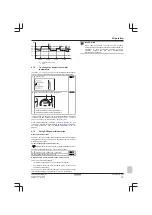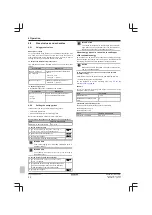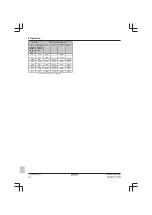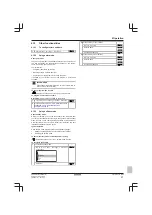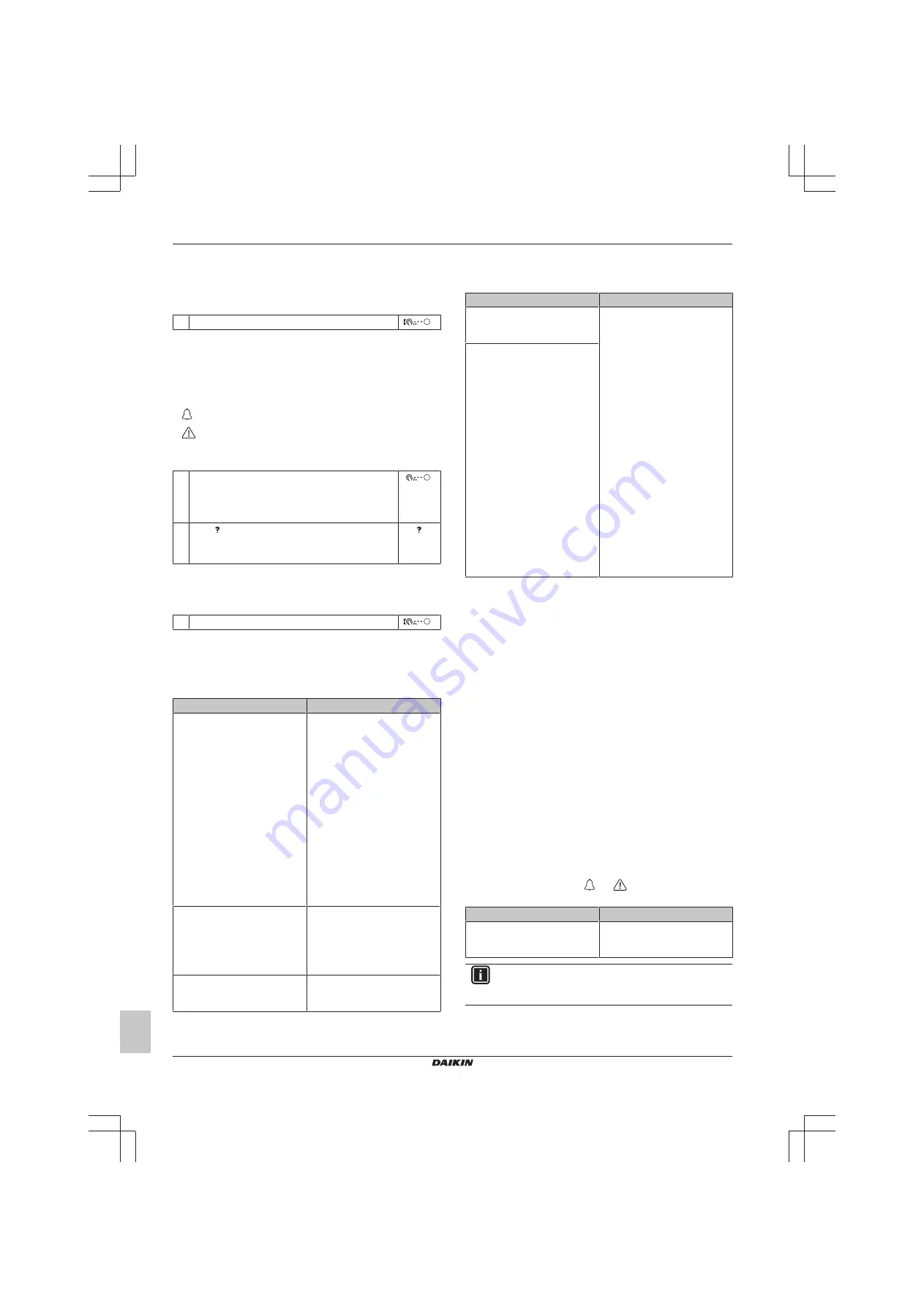
7 Troubleshooting
User reference guide
30
EGSAH/X06+10DA9W(G)
Daikin Altherma 3 GEO
4P569819-1 – 2019.02
7
Troubleshooting
For the symptoms listed below, you can try to solve the problem
yourself. For any other problem, contact your installer. You can find
the contact/helpdesk number via the user interface.
1
Go to [8.3]:
Information
>
Dealer information
.
7.1
To display the help text in case of
a malfunction
In case of a malfunction, the following will appear on the home
screen depending on the severity:
▪
: Error
▪
: Malfunction
You can get a short and a long description of the malfunction as
follows:
1
Press the left dial to open the main menu and go to
Malfunctioning
.
Result:
A short description of the error and the error
code is displayed on the screen.
2
Press in the error screen.
Result:
A long description of the error is displayed
on the screen.
7.2
To check the malfunction history
Conditions:
The user permission level is set to advanced end user.
1
Go to [8.2]:
Information
>
Malfunction history
.
You see a list of the most recent malfunctions.
7.3
Symptom: You are feeling too cold
(hot) in your living room
Possible cause
Corrective action
The desired room temperature is
too low (high).
Increase (decrease) the desired
room temperature. See
change the desired room
temperature" on page 17
If the problem recurs daily, do
one of the following:
▪ Increase (decrease) the room
temperature preset value. See
"4.8.1 Using preset values" on
page 20
.
▪ Adjust the room temperature
schedule. See
.
The desired room temperature
cannot be reached.
Increase the desired leaving
water temperature in accordance
with the heat emitter type. See
"4.6.5 To change the desired
leaving water temperature" on
page 17
The weather-dependent curve is
set incorrectly.
Adjust the weather-dependent
curve. See
.
7.4
Symptom: The water at the tap is
too cold
Possible cause
Corrective action
You ran out of domestic hot
water because of unusual high
consumption.
If you immediately need domestic
hot water, activate the DHW tank
Powerful operation
. However,
this consumes extra energy. See
"4.7.6 Using DHW powerful
operation" on page 19
If the problems recurs daily, do
one of the following:
▪ Increase
the
DHW
tank
temperature preset value. See
"4.8.1 Using preset values" on
page 20
.
▪ Adjust
the
DHW
tank
temperature
schedule.
Example:
Program
to
additionally
heat
up
the
DHW tank to a preset value
(
Eco setpoint
= lower tank
temperature) during the day.
See
programming schedules" on
page 21
The desired DHW tank
temperature is too low.
7.5
Symptom: Heat pump failure
When the heat pump fails to operate, the backup heater can serve
as an emergency heater. It then takes over the heat load either
automatically or by manual interaction.
▪ When
Emergency
is set to
Automatic
and a heat pump failure
occurs, the backup heater automatically takes over the domestic
hot water production and space heating.
▪ When
Emergency
is set to
Manual
and a heat pump failure
occurs, the domestic hot water heating and space heating stops.
To manually recover it via the user interface, go to the
Malfunctioning
main menu screen and confirm whether the
backup heater can take over the heat load or not.
▪ Alternatively, when
Emergency
is set to:
▪
auto SH reduced/DHW on
, space heating is reduced but
domestic hot water is still available.
▪
auto SH reduced/DHW off
, space heating is reduced and
domestic hot water is NOT available.
▪
auto SH normal/DHW off
, space heating operates as
normally but domestic hot water is NOT available.
Similarly as in
Manual
mode, the unit can take the full load with
the backup heater if the user activates this via the
Malfunctioning
main menu screen.
When the heat pump fails,
or
will appear on the user
interface.
Possible cause
Corrective action
Heat pump is damaged.
See
in case of a malfunction" on
page 30
.
INFORMATION
When the backup heater takes over the heat load,
electricity consumption will be considerably higher.




